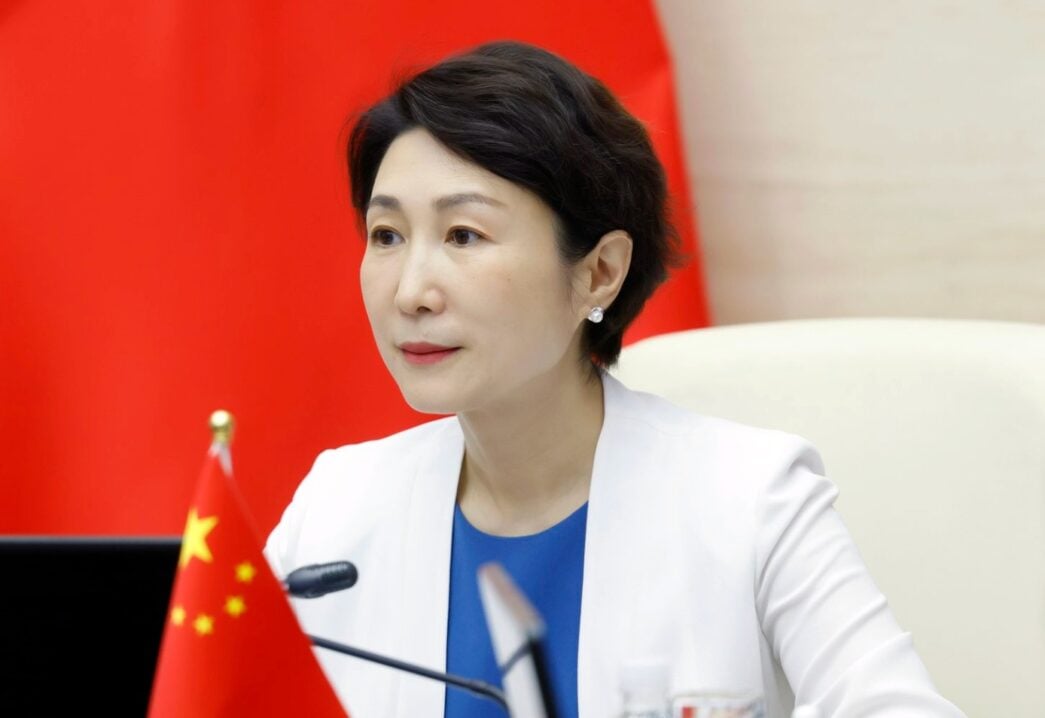China has warned the United States and other Western powers against interfering in Nigeria’s internal affairs, following remarks by U.S. President Donald Trump threatening possible military action in the country over alleged killings of Christians. The Chinese government issued the warning through its Foreign Ministry spokesperson, Mao Ning, who reaffirmed Beijing’s support for Nigeria as a strategic partner and urged respect for the sovereignty of all nations. Speaking during a press briefing in Beijing on Tuesday, Mao said China firmly opposes any country using religion or human rights as a pretext to interfere in the internal affairs of other nations or to threaten them with sanctions and force. She stressed that Nigeria remains a comprehensive strategic partner to China and that Beijing will continue to stand for cooperation based on mutual respect and non-interference.
Her comments came after President Trump, over the weekend, issued a warning to Nigeria through his social media platform, threatening to cut aid and initiate possible military intervention if the Nigerian government fails to end what he described as “the killing of Christians” in the country. In his statement, Trump said he had instructed the U.S. Department of War to prepare for possible action in Nigeria if the alleged attacks on Christians continued. He further claimed that the U.S. may “immediately stop all aid and assistance and go into that now disgraced country, guns blazing, to completely wipe out the Islamic terrorists who are committing these horrible atrocities.” The declaration sparked widespread international reactions and reignited debate over the nature of violence in Nigeria and how it has often been interpreted through religious and political lenses.
Following the U.S. President’s remarks, Washington reinstated Nigeria on its list of “Countries of Particular Concern” over alleged violations of religious freedom, a designation that allows the U.S. government to impose sanctions and limit bilateral engagement. Nigerian authorities, however, swiftly rejected the designation and the threats that followed. The federal government described the U.S. President’s statement as misleading and unhelpful, noting that Nigeria is not a religiously intolerant country and that its security agencies are tackling violent crimes across regions without bias to faith or ethnicity. Presidential spokesman Daniel Bwala responded that Nigeria welcomes any genuine assistance from the United States in the fight against terrorism, but such support must be accompanied by full respect for Nigeria’s sovereignty and territorial integrity.
The Nigerian government also reiterated that the violence being witnessed in parts of the country is multifaceted and driven by criminal, economic, and political factors, not religious persecution. Nigeria, Africa’s most populous nation, has for years faced insecurity from terrorist groups such as Boko Haram and the Islamic State West Africa Province in the northeast, as well as banditry in the northwest and deadly clashes between farmers and herders in the Middle Belt. Security analysts have consistently maintained that both Christians and Muslims have suffered greatly from these conflicts, often as victims of groups exploiting religion to justify their violence. Researchers at the Armed Conflict Location and Event Data Project (ACLED) have documented thousands of deaths across religious lines, noting that the violence is frequently indiscriminate rather than faith-specific.
Amid this complex backdrop, China’s reaction underscores the deepening rivalry between Beijing and Washington in Africa. By speaking out in defense of Nigeria, China positioned itself as a defender of state sovereignty and a critic of what it sees as Western coercion. Mao Ning emphasised that Beijing rejects unilateral military actions or sanctions under the guise of defending human rights, saying such acts undermine international peace and stability. She also referenced similar U.S. interventions in Latin America, noting that the use of force without United Nations authorization or bilateral consent violates international law.
Nigeria and China share extensive economic and political ties. China has invested heavily in Nigeria’s infrastructure, including railways, power projects, and oil development, making it one of Nigeria’s largest bilateral creditors. The two countries also cooperate under the Forum on China-Africa Cooperation (FOCAC), through which Beijing has pledged billions of dollars in loans and grants for African development. China’s statement reflects both its commitment to Nigeria’s stability and its broader interest in safeguarding its African investments from Western influence or potential geopolitical upheaval.
However, foreign policy experts note that Washington’s threat of military action lacks clear legal grounding, as no international mandate or congressional approval currently supports such an operation. Officials at the U.S. Department of Defense have reportedly clarified that no deployment orders have been issued and that any military planning remains speculative.
Within Nigeria, public reactions have been divided. Some Christian groups have welcomed the U.S. stance, interpreting it as a necessary step to draw attention to the persecution faced by certain communities. Others, however, have cautioned against any form of foreign military interference, warning that such an action would worsen instability and undermine national sovereignty. Prominent civil society organizations and political analysts have also urged both the U.S. and China to focus their influence on promoting peace, dialogue, and socioeconomic development rather than competing for political leverage.
As of Tuesday morning, neither the U.S. State Department nor the Nigerian Ministry of Foreign Affairs had announced any formal changes to diplomatic relations. Analysts, however, warn that escalating rhetoric could have implications for foreign aid, trade, and security cooperation if not carefully managed. For now, China’s strong statement appears to have added a new dimension to an already tense situation, as major powers weigh in on Nigeria’s domestic affairs.
Samuel Aina

